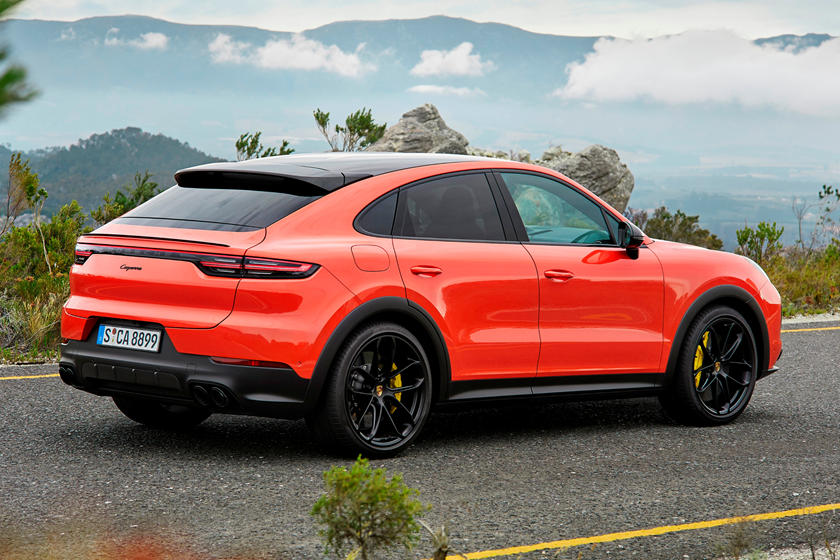Porsche Vs Lexus: A Comparative Analysis Of Luxury And Performance
Share
When it comes to luxury vehicles, few names resonate like Porsche and Lexus. Both brands are synonymous with quality, refinement, and performance, yet they cater to slightly different demographics and driving philosophies. This article seeks to provide an in-depth comparison of Porsche and Lexus, focusing on their remarkable engineering, performance capabilities, and overall luxury experience.

The Heritage and Philosophy of Porsche
Porsche, founded in 1931 in Stuttgart, Germany, is revered for its unwavering commitment to performance and engineering excellence. The brand's iconic models, including the 911, Cayman, and Panamera, are celebrated for their lightweight construction, agile handling, and exhilarating performance. Porsche has always prioritized the driving experience, creating cars that appeal to enthusiasts and casual drivers alike.
Porsche’s slogan, “There is no substitute,” embodies its philosophy; the company relentlessly pursues perfection in design, engineering, and performance. The result is vehicles that don’t just perform but engage the driver on a visceral level.

The Elegance and Innovation of Lexus
On the other hand, Lexus was established in 1989 as the luxury division of Toyota, focusing on offering a sophisticated blend of comfort, reliability, and advanced technology. Lexus vehicles, such as the ES, RX, and the exhilarating LC, emphasize a smooth driving experience and lavish interiors.
Lexus has developed a strong reputation for exceptional customer service and reliability, traits that have accelerated its appeal among luxury car buyers. The unique design philosophy, called "L-finesse," emphasizes elegance and tranquility, appealing to those who value aesthetics as much as performance.

Performance: Power and Precision
When we pivot to performance, the contrast between Porsche and Lexus becomes even clearer. Porsche vehicles are engineered for dynamic driving, with a wide range of powertrains designed to provide adrenaline-pumping acceleration and agility. The legendary Porsche 911, for example, comes with a rear-engine layout and an impressive lineup of engines that hover between 379 hp and 650 hp, depending on the variant.
Conversely, Lexus’ performance-oriented models, such as the Lexus RC F and GS F, while impressive, represent a different philosophy. The focus is not purely on raw power but rather on a balanced driving experience. Lexus’ naturally aspirated V8 engines deliver respectable power, but the brand emphasizes a comfortable ride without sacrificing handling.

Luxury and Comfort: Two Distinct Approaches
Both brands provide luxurious interiors, albeit with differing design aesthetics and features. Porsche typically opts for a minimalist and sporty interior design, focusing on driver engagement and ergonomics. Their interiors incorporate high-quality materials and finishings, with a driver-centric layout that enhances the overall performance experience.
In contrast, Lexus prioritizes opulence in its vehicles. The interiors are plush, filled with abundant soft-touch materials, advanced technology interfaces, and meticulous attention to detail. Lexus vehicles often include comfort-enhancing features such as heated and ventilated seats, premium sound systems, and advanced ambient lighting to create a serene driving environment.

Technology and Infotainment Systems
Technology in vehicles is paramount for both brands, but they approach it from different angles. Porsche integrates state-of-the-art sport-driven technology in their infotainment systems. Features include the Porsche Communication Management system, which includes advanced navigation options, connectivity, and infotainment that enhances the driving experience.
Lexus, famous for its innovation, frequently includes cutting-edge safety systems and driver assistance technologies. Their Lexus Safety System+ package comes standard on many models, offering adaptive cruise control, lane-keeping assist, and automated emergency braking to enhance safety during every ride.
Pricing: Value Proposition
Price-wise, Porsche vehicles typically come with a higher price tag compared to their Lexus counterparts. The starting price for a Porsche can be considerably higher, especially when options and customizations are factored in. The higher initial cost is associated with the performance, handling, and heritage of the brand.
Lexus, while also positioned in the luxury market, provides several entry-level options that still exude sophistication and reliability without breaking the bank. This pricing strategy allows Lexus to appeal to a broader audience who appreciates luxury but remains price-conscious.
Target Audience: Who Do They Attract?
Porsche tends to attract driving enthusiasts and individuals looking for performance and engagement in their driving experience. Owners often cherish the idea of a sports car lifestyle and value the heritage and engineering pedigree that comes with each Porsche model.
On the flip side, Lexus caters to a demographic that prioritizes comfort, reliability, and cutting-edge technology. Typical Lexus buyers seek luxury and a smooth ride, making it an ideal choice for those who value comfort over performance.
Conclusion: Porsche vs Lexus
In summary, the debate between Porsche vs Lexus brings two distinct philosophies to the forefront. Porsche thrives on performance, engineering excellence, and an exhilarating driving experience, while Lexus excels in luxury, comfort, and advanced technology.
Whether you are drawn to the race-inspired performance of a Porsche or the serene opulence of a Lexus, both brands deliver extraordinary vehicles that uphold their respective legacies. Your choice ultimately depends on personal preferences in driving style, luxury, and the values you prioritize in a vehicle.
As automotive enthusiasts, our hearts may sway toward the sporty appeal of a Porsche, but the craftsmanship and comfort of a Lexus cannot be overlooked. Each brand has carved out a unique niche, making them both worthy contenders in the luxury market.